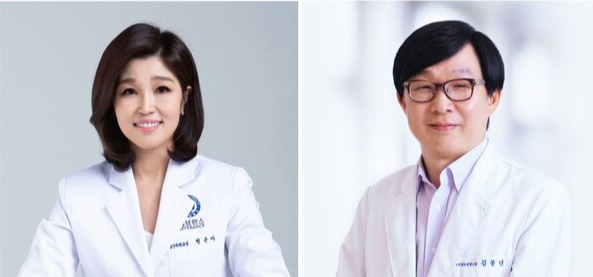Yonsei University University-Industry Foundation and Seoul National University (SNU) R&DB Foundation launched a government project on Wednesday to advance bio-health big data on children with autism spectrum disorders (ASD) and develop a digital medical device for early ASD screening, backed by 9.2 billion won ($6.56 million) in state funding.

According to Severance Hospital on Thursday, the consortium for the government project is being led by Professor Cheon Keun-ah of the Department of Child and Adolescent Psychiatry at Severance Hospital and Professor Kim Bung-nyun of the same department at Seoul National University Hospital.
Other participants include Gangnam Severance Hospital, CHA Gangnam Medical Center, Ewha Womans University Seoul Hospital, Ewha Womans University Mokdong Hospital, Hanyang University Medical Center, Wonkwang University Hospital, and Seoul St. Mary’s Hospital.
To develop an AI-powered digital medical device for ASD screening, Yonsei University’s Departments of Biomedical Systems Informatics and Neurosurgery, Korea Advanced Institute of Science and Technology (KIST), Urban Datalab, Huray Positive, EverTri, Baikal AI, Eco Insight, and A.Cure will also collaborate with the consortium.
The project aims to develop a digital medical device by 2028 to screen those at risk for ASD early and predict their progress.

The consortium plans to establish a new cohort of 1,200 infants and toddlers aged 48 months or younger, collect data, and develop a medical device based on that data. It also aims to obtain innovative medical device designation from the Ministry of Food and Drug Safety.
Currently, the diagnosis of ASD relies heavily on clinical findings by specialists and subjective observations by caregivers, which has limitations in terms of objectivity and consistency.
By using digital technology to detect early signs in a child’s daily life and incorporating them into the screening process, the efficiency of ASD screening will be improved, Severance Hospital said.
“The AI-based ASD screening medical device to be developed through this project will be a paradigm shift in the early diagnosis and treatment of autism,” said Professor Cheon.
“The consortium will lay the foundation for overcoming the limitations of diagnosing ASD and leading to better treatment outcomes,” said Professor Kim.
Related articles
- Severance Hospital, KASEC partner to support individuals with developmental disabilities in Korea, US
- SNUBH study reveals gender-specific genetic factors of autism among Koreans
- Koreans' genetic variants associated with autism spectrum disorder identified for 1st time
- Gut microbiome types decide autism spectrum’s severity
- AI model predicts major cardiac events with 94% accuracy in ER patients
- AstraZeneca Korea forms strategic clinical trial partnership with Severance Hospital
- Immune cells supercharge aspirin delivery, boosting transfer up to 30-fold: Yonsei study
- Mobile game therapy boosts social skills in teens with autism: study
- Yonsei Cancer Center expands heavy ion therapy to hard-to-treat cancers
- AI-powered smartphone app shows 94% accuracy in early autism screening
- [Interview] Yonsei psychiatrist Cheon on Korea's push for a quicker 1st pass in autism care
- BTS Suga-backed autism center opens in Seoul, offering music-based therapy at Severance

